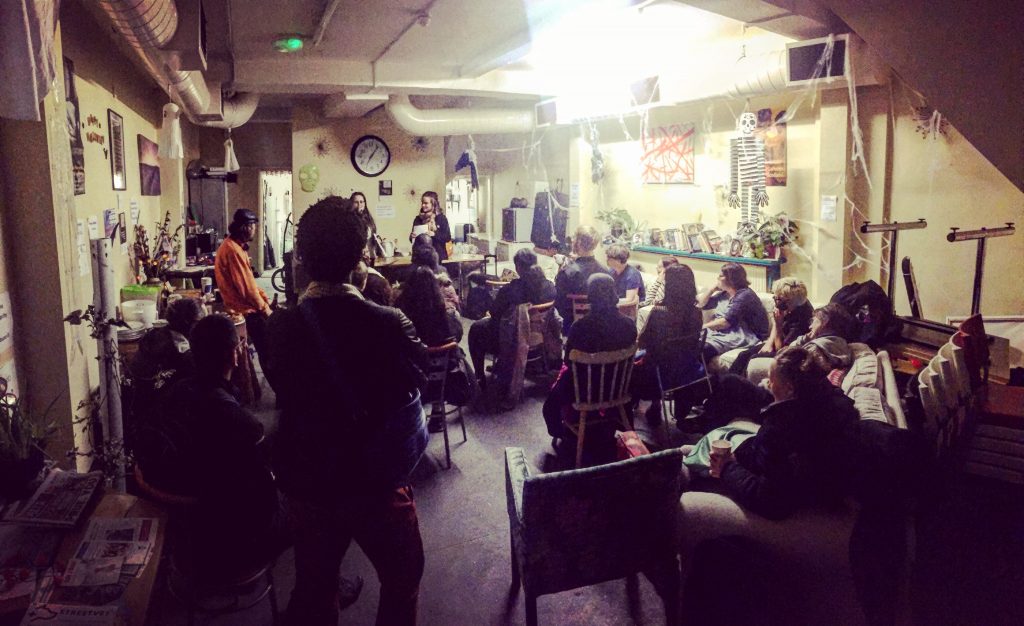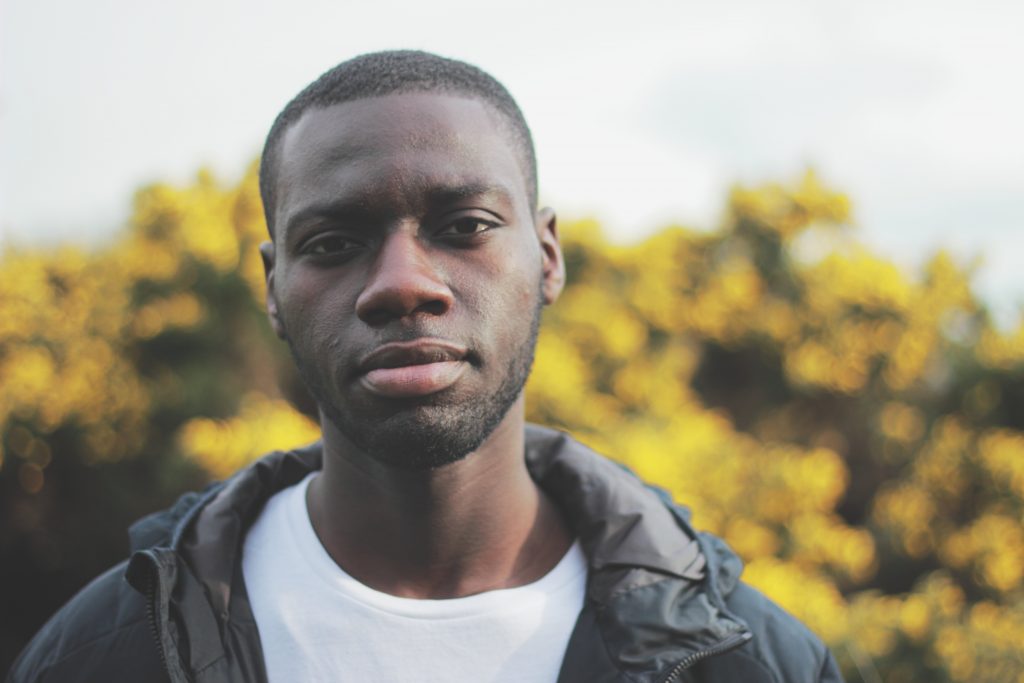The UK has a homelessness problem. It’s an undeniable fact.
More than 4,700 people are currently thought to be living on the streets – a rise for the seventh year in a row – and around 78,000 families are believed to be living in temporary accommodation. In total, more than 300,000 people are thought to be homeless across the country, with this number expected to double by 2041.
The crisis has been touted as one of biggest problems of 2018, but for Kwame Sekyere we’re yet to even take the first step – humanising the people who experience homelessness. “There are so many ways for us to give to charities,” he tells me. However, there’s a catch. “They are all really detached though. Sometimes the most important thing you can do is actually be present and understand that these are just people.”
‘We Need to See People As Normal Humans’

The Street Kitchen Podcast. Image Credit: Kwame Sekyere
“When you’re giving money to ‘kids in Africa’ or ‘homeless people’ there is a division between the two of you, because it’s ‘I’m giving to you’,” he explains. “And whether it’s conscious or subconscious, it creates some kind of power structure and hierarchy. When you literally just go and have a coffee with someone it does just help you to see them as a normal human being.”
It’s a simple idea, and also the rationale behind his new project Five Fifths, which aims to bring communities closer together through innovative productions and social media. With the name inspired by ‘the three-fifths compromise‘ in 1787 America, which meant slaves only counted as three-fifths of a person in population statistics, the 22-year-old hopes to bridge the massive gaps between sections of our society.
When you literally go for a coffee with someone it does just help you see them as a normal human being.
Kwame Sekyere, Five Fifths
“The whole concept is making people from three-fifths into five-fifths of a human, and that’s done through participating in things with them,” he adds. “The word I use is distance. It’s essentially the space between two people and two communities. It could be economic, it could be geographical, it could be social, but it’s about bridging that distance.”
His first series has been a podcast in conjunction with Streets Kitchen in Camden, which aims to give homeless people an unfiltered platform and voice. Participants talk about everything from their love for the local area and their favourite football team, to how valuable it is when someone takes thirty seconds out of their day for them.
Listen – The Streets Kitchen Podcast
“People that work at Streets Kitchen go out and speak to homeless people and just have general everyday conversations,” he explains. “We record it and we put it on the podcast and that is just helping people to see that ‘yeah they’re homeless but they’re also people.’”
‘We Need to be Humans to Have Human Rights’
Video Credit: Project Five Fifths
Many of the issues which Kwame plans on focusing on during the next few months, such as homelessness and the Grenfell Tower tragedy, are ones which touch heavily on our human rights. It’s not a connection he’s unaware of.
There have always been rights for people. What has changed is who those rights have been afforded to.
Kwame Sekyere, Five Fifths
“Human rights are important, but only when you see someone as a human. Throughout history there have always been rights and protections for people, but what has changed is who those rights and protections have been afforded to.
“It’s improved over time, as we saw things like the Universal Declaration of Human Rights being brought in, to extend rights to those who aren’t just rich and powerful. However, I do still feel like there is progress to be made in terms of who these rights are afforded to – and it is these people we are so distant from. We need to make sure these structures work for people who aren’t part of the mainstream.”
Creating A More Positive Media

Image Credit: Kwame Sekyere
Part of this also means trying to build a new model for the media which helps to bring people together and highlight untold stories – rather than focusing on ideas about ‘us and them’. “The media is very powerful in terms of its ability to shape the way that people think, and very often when things have that much power, we’re scared of them and we want to push them away,” says Kwame.
The media has the potential to do amazing good. There’s a lot possible and it’s vital we bring a message of positivity.
Kwame Sekyere, Five Fifths
However, much like sites such as The Overtake and Positive News, he’s certain outlets can help bring society together, rather than divide it. “The media is different. It has the potential to harm, but also to do amazing good as well. I want [Five Fifths] to be fluid. I want it to be dynamic and changing. There’s a lot possible with the media, and it’s vital we bring out the message of positivity to places that haven’t had a lot of it.”







